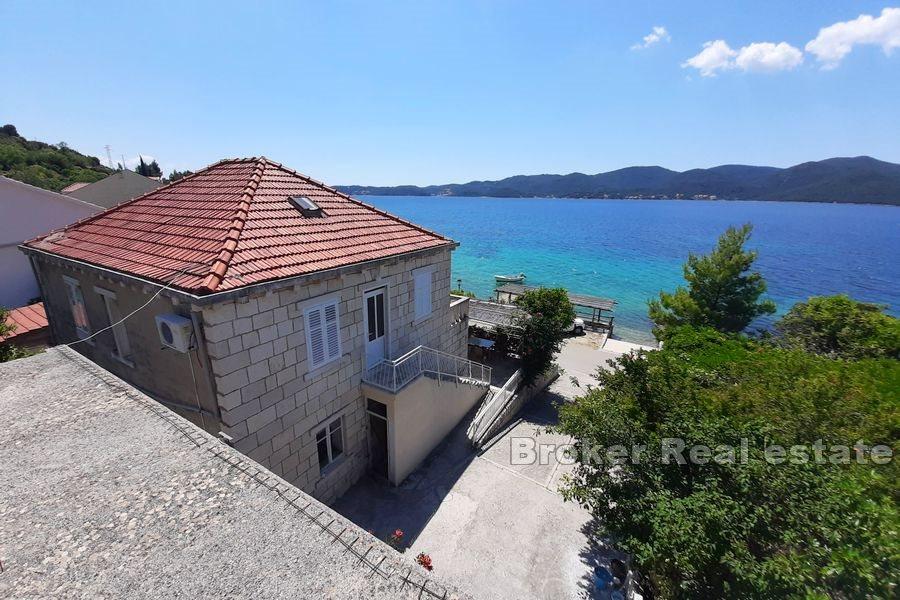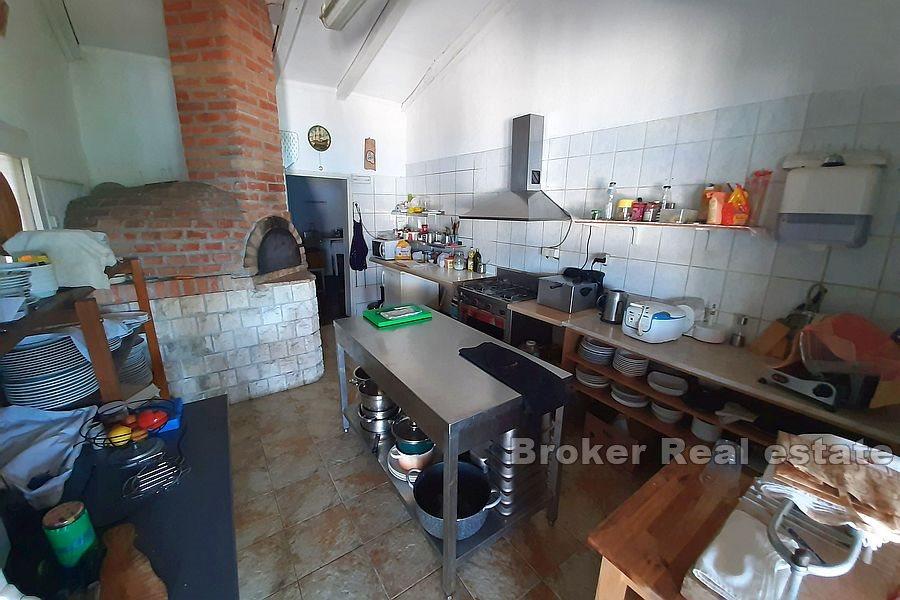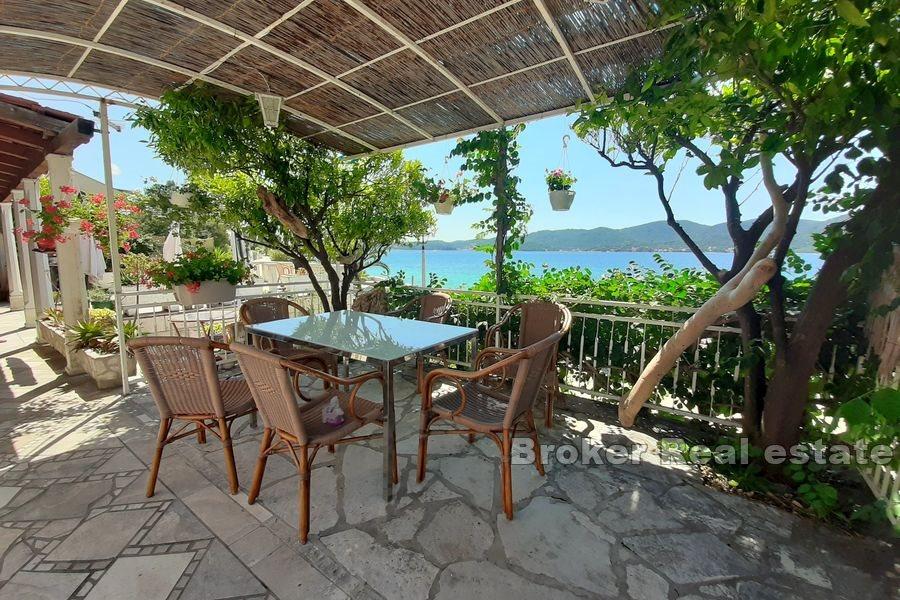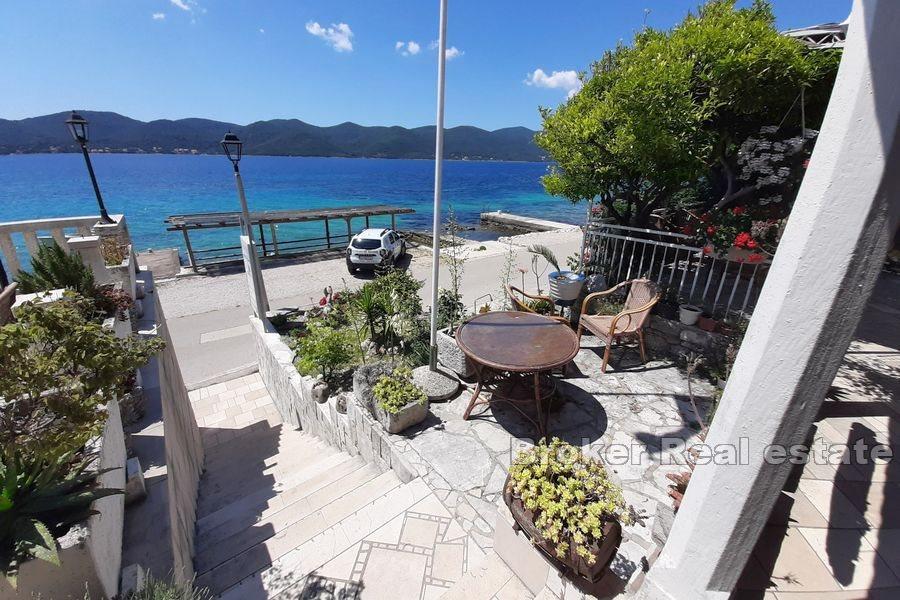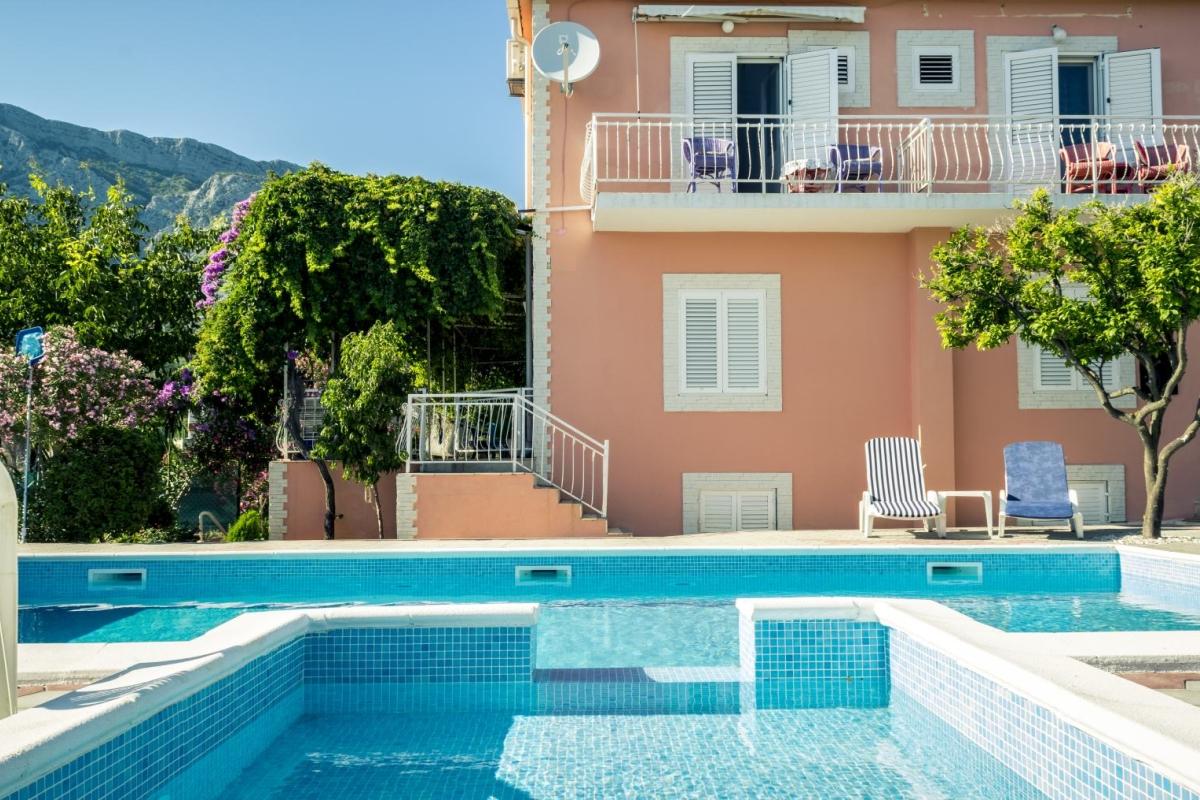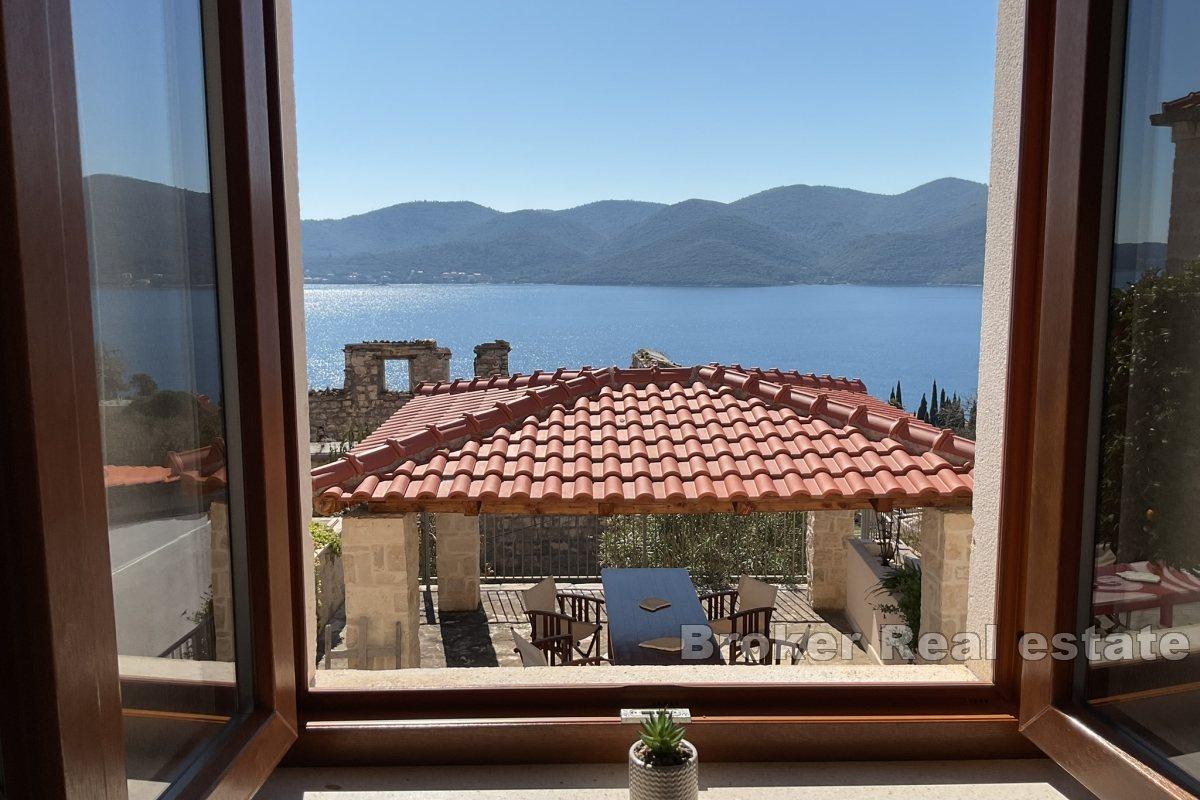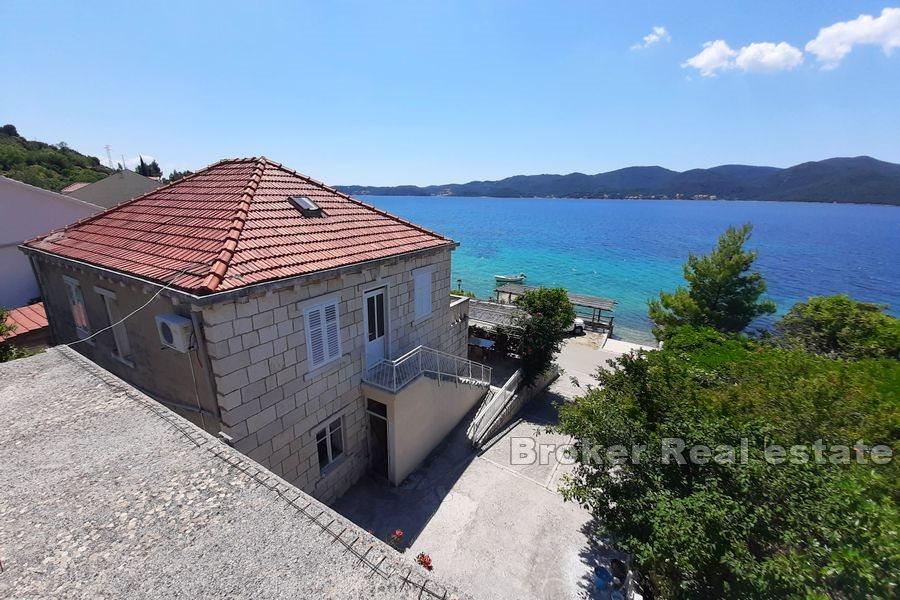

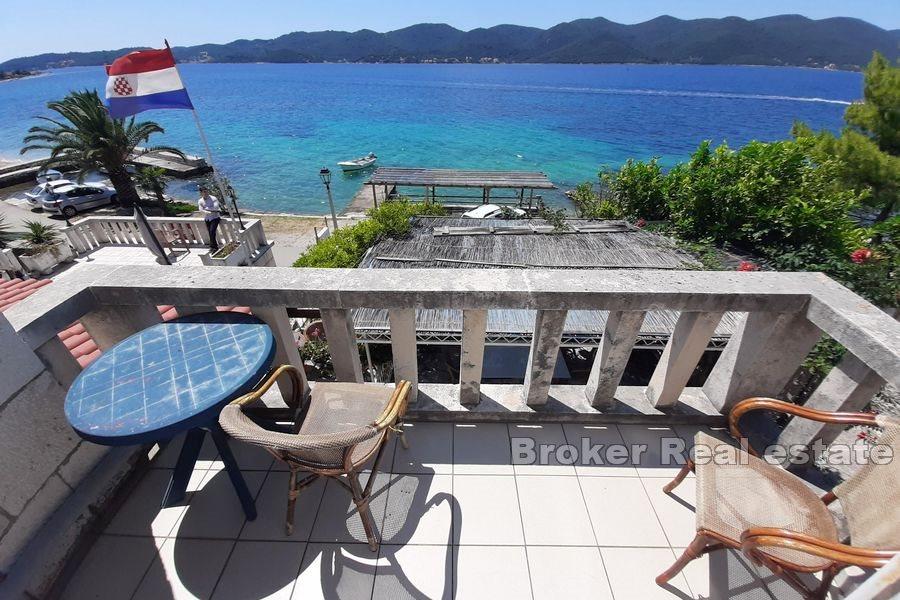
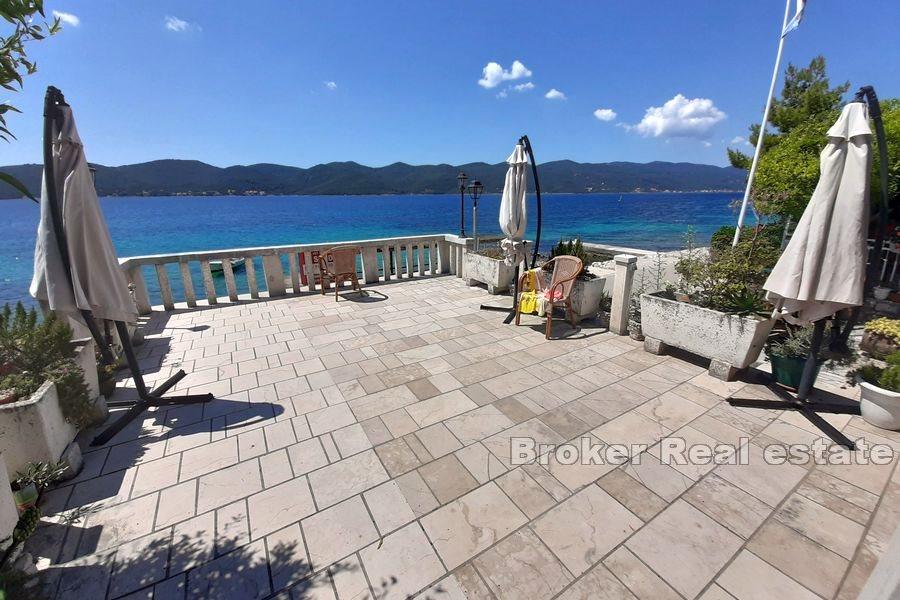
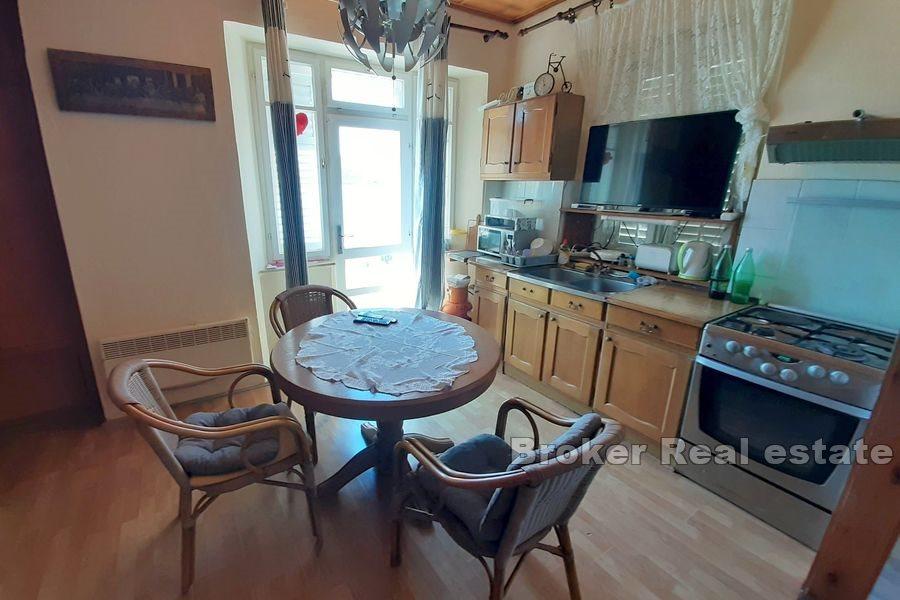
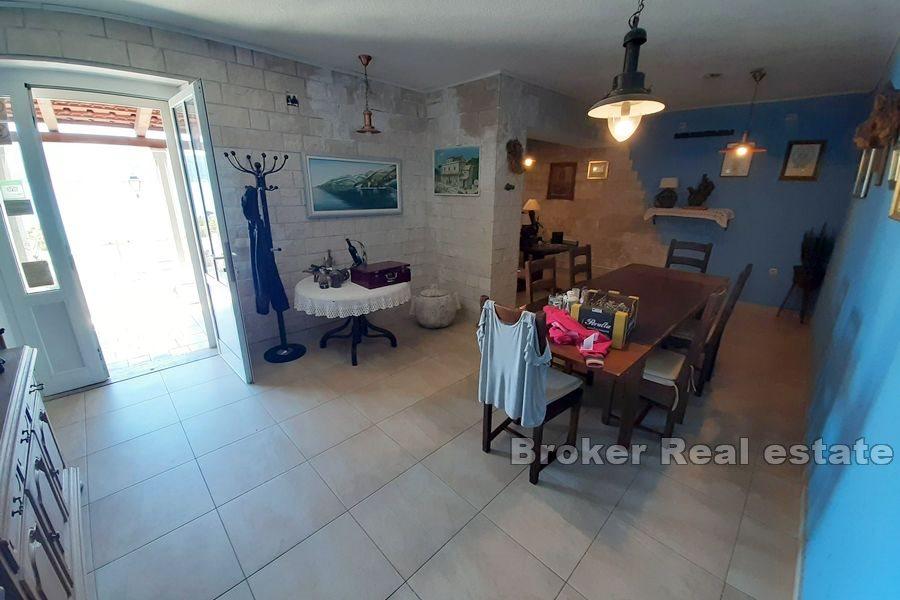
Croatia, Dalmatia coast, Peljesac - Stone house first row to the sea
ID: 2016/462Basic information
Living space:128 m2
Land space:420 m2
Bedrooms:5
Bathrooms:2
Sea distance:10 m
Seafront
Property advantages
- Sea view
Amenities
- Energy Certificate
- Parking
About the property
Stone house, for sale, located in the first row by the sea on the south side of the Peljesac peninsula, with a total living area of 128 m2, on a plot of 420 m2.
The house consists of the main building (ground floor and first floor) and an auxiliary additional building.
The main building is divided into ground floor and first floor. On the ground floor there is a business space (open floor restaurant), and is connected by internal and external stairs to the upper floor where there are three bedrooms, two bathrooms and a living room with access to the terrace.
The auxiliary building is approximately 24 m2 in size, and it currently serves as a kitchen for a restaurant, while in front of the house is a large terrace with open sea view.
All in all, a very interesting opportunity for the buyer, although the house requires the adaptation of the interior space, but given its excellent position, the property has very good potential.
The house has the possibility of parking for several vehicles.
Location
Peljesac, Dalmatia coast
Pelješac is a peninsula in southern Dalmatia in Croatia. From the isthmus that begins at Ston, to the top of Cape Lovišta, it is 65 km long. The Pelješac Bridge spans the sea channel between Komarna on the northern mainland and the peninsula of Pelješac, thereby passing entirely through Croatian territory and avoiding any border crossings with Bosnia and Herzegovina at Neum.
Are you looking for something else?


